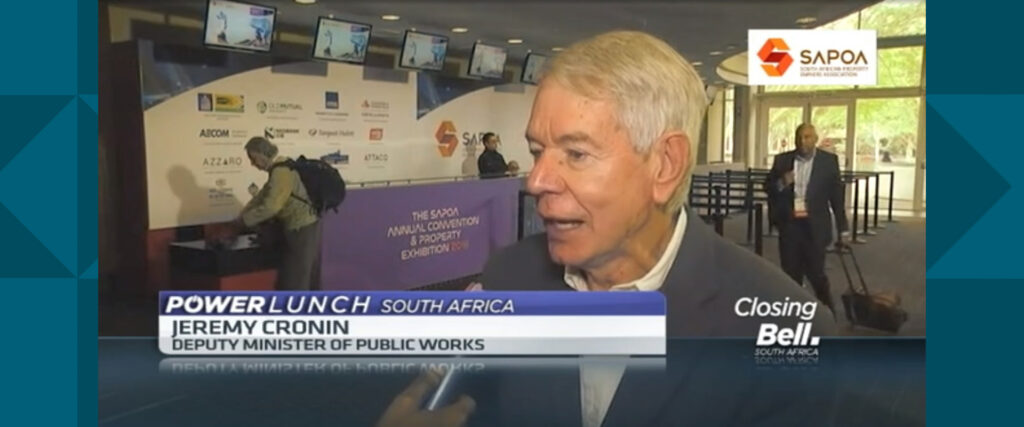MAIN IMAGE: Jeremy Cronin, Deputy Minister of Public Works.
Land expropriation without compensation is not the only or major means to achieving just and necessary land reform, says Jeremy Cronin, Deputy Minister of Public Works.
Cronin also criticised the slow pace of land reform since 1994 denouncing it as pathetic and said it is essential that progress is made on this emotive issue. He was speaking on Wednesday 20 June at the annual convention of the South African Property Owners Association (SAPOA) in Durban. Cronin was one of several speakers addressing this issue in front of attendees representing major role players in the property industry.
He said the ANC’s acceptance of land expropriation without compensation as a key mechanism to fast-track land reform has placed President Cyril Ramaphosa in a difficult position.
“It’s a booby trap for President Ramaphosa. He will upset international investors as he goes ahead with it even if he pleases many people within the country,” Cronin said.
However, Cronin believes the debate around land reform should be turned into an opportunity, rather than be used for mutual destruction. He said the ANC’s approach to land reform must be based on three separate elements: increased security of tenure, land restitution and land redistribution.
“The accelerated programme of land reform must be done in an orderly manner. Strong action must be taken against those who occupy land unlawfully,” Cronin said.
He said the Bill of Rights and specifically the Property Clause are not obstacles to effective land reform but says they should rather consider introducing a brief limitation clause into the Expropriation Bill which allows the state to withhold compensation under certain conditions, e.g. if the property is an abandoned building or un-utilised land, property held purely for speculative purposes or under-utilised property owned by public entities.
Cronin said the Department of Rural Development and Land Reform has some 5 000 unallocated farms and the Department of Public Works sits with 93 000 buildings and 30 000 land parcels on its immovable assets register.
“Expropriation with/without compensation is only one and not remotely the major means to achieving just, equitable, sustainable and absolutely necessary land reform,” he said.
Land reform requires financial, infrastructural and institutional support as well as a clear legislative indication of who should be the major beneficiaries.
“We need to have a rational, constitutionally aligned and patriotic discussion on how to address the land question as part of a New Deal/Dawn for all South Africans,” concluded Cronin.
SAPOA president Peter Levett said SAPOA noticed a significant downward trend in the pace of retribution measured by hectares since 2008.
“In 2008, redistribution peaked at 500 000 hectares per annum but by 2016/17, was almost at zero. Clear policies need to be finalised which identifies the purpose of land redistribution,” he said.
Levett said SAPOA supports a land expropriation process where the rights of present and future landowners are balanced with the need to ensure stability and economic growth.
Earlier DA leader Mmusi Maimane had said that extending property ownership is the key to empowering poor South Africans and this right should be protected by the Constitution, not meddled with.
“Title deed to a piece of land, no matter where and no matter who small, can be the key to financial independence,” he said.
Furthermore, insecurity about property ownership, could drive away much-needed investors.
The SAPOA Convention opened on 19 June and concluded Thursday 21 June.*
(*Article edited after publication. Ed.)
Comments or suggestions are welcome. Email editor@propertyprofessional.co.za.








